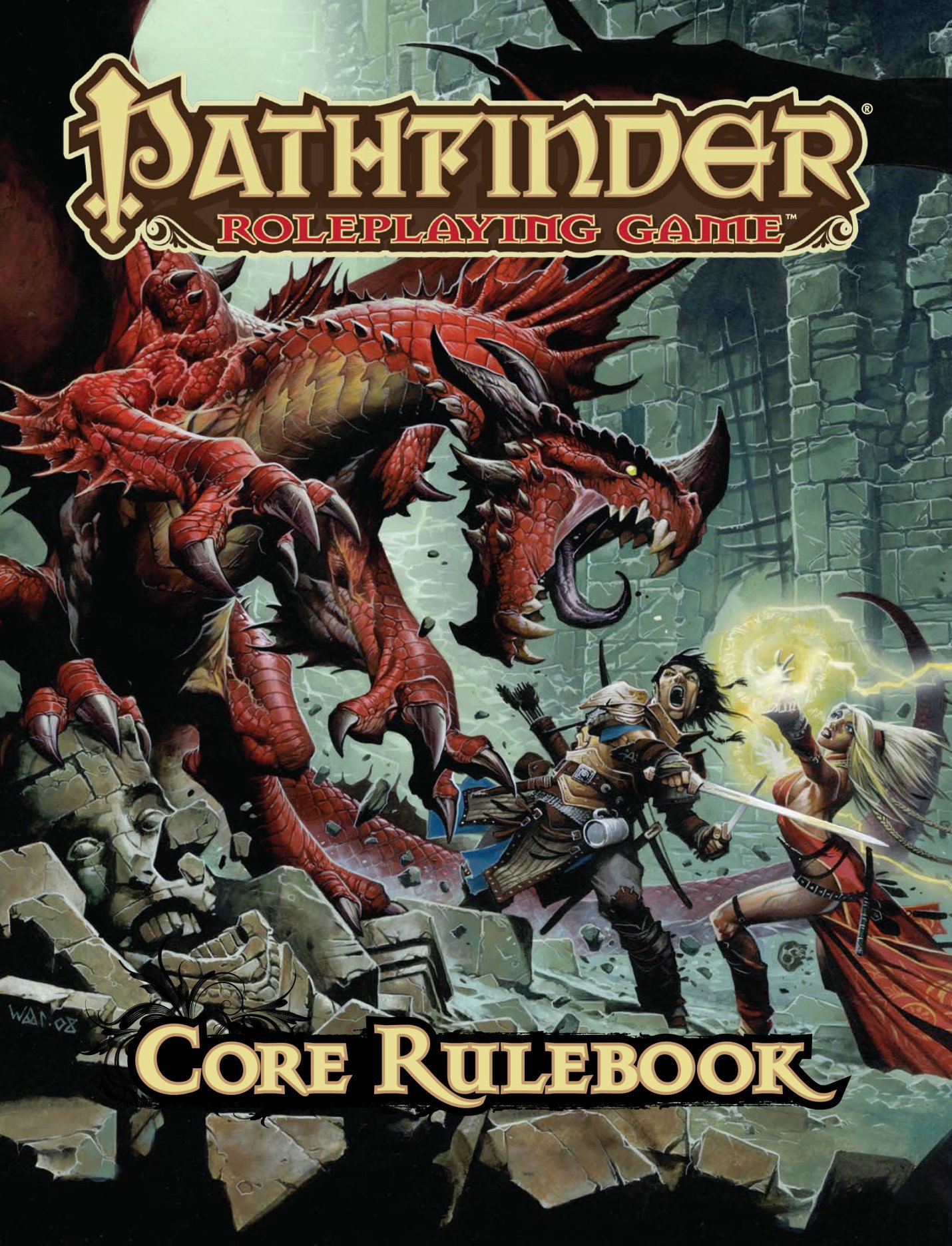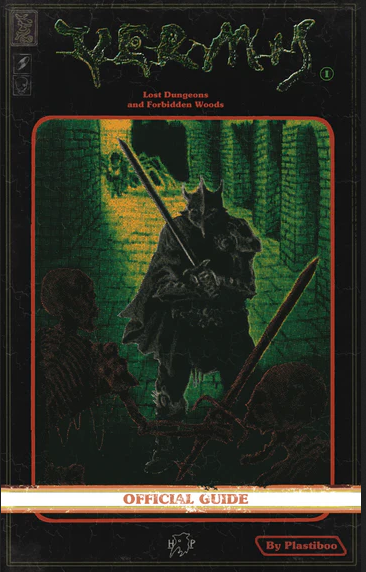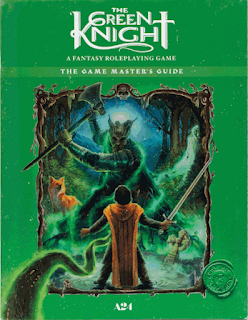LotFP d6 Skills versus 3e/Pathfinder d20 Skills
 As a huge fan of LotFP and its d6 skill system, I wanted to take a look at one of the other most popular and celebrated skill systems. Third Edition Dungeons & Dragons d20 system was a turning point in game design, in my opinion- it changed most things to d20 rolls, had tight tactical rules, ascending AC, and a bunch of other stuff. Probably most importantly, the Open Game License, without which we wouldn't have the OSR. But the skills. Let's look at the skills. I'll be breaking this down into several categories, comparing the LotFP system to the 3e/Pathfinder system, and awarding points. Spoiler, LotFP wins, big fucking surprise. But this isn't a contest, it's an analysis (with a stupid point thing).
As a huge fan of LotFP and its d6 skill system, I wanted to take a look at one of the other most popular and celebrated skill systems. Third Edition Dungeons & Dragons d20 system was a turning point in game design, in my opinion- it changed most things to d20 rolls, had tight tactical rules, ascending AC, and a bunch of other stuff. Probably most importantly, the Open Game License, without which we wouldn't have the OSR. But the skills. Let's look at the skills. I'll be breaking this down into several categories, comparing the LotFP system to the 3e/Pathfinder system, and awarding points. Spoiler, LotFP wins, big fucking surprise. But this isn't a contest, it's an analysis (with a stupid point thing).
Number and Function of Skills
 The LotFP skill system has a lean 10 skills, with Refs encouraged to create their own as needed. The 3e system has a plethora of skills (I list 38 here. Pathfinder has 28 according to paizo.com, but that's still a lot). Here are the 3e skills, grouped together to show what they boil down to and placed under the equivalent LotFP skill:
The LotFP skill system has a lean 10 skills, with Refs encouraged to create their own as needed. The 3e system has a plethora of skills (I list 38 here. Pathfinder has 28 according to paizo.com, but that's still a lot). Here are the 3e skills, grouped together to show what they boil down to and placed under the equivalent LotFP skill:
Architecture- Disable Device & Search (for stonework), Survival (underground)
Bushcraft- Handle Animal, Ride, Survival
Climb- Climb
Languages- Decipher Script, Speak Language
Open Doors- Open Lock (?)
Sleight of Hand- Balance (?), Disguise (?), Escape Artist, Forgery (?) Sleight of Hand, Tumble(?), Use Rope
Tinker- Disable Device, Forgery(?) Open Lock
Search- Listen, Search, Spot
Stealth- Hide, Move Silently
Things that are not skills because players could and should roleplay them- Bluff, Diplomacy, Gather Information, Intimidate, Perform, Sense motive
Things that are not skills because they don't need to be skills- Autohypnosis, Control Shape, Jump, Psicraft, Spellcraft, Swim, Use Magic/Psionic Device
Things that are not skills and I'm not sure why, but don't come up often- Appraise, Craft (I have this in my game, but not standard LotFP), Heal, Knowledge, Profession (redundant with Craft in a lot of ways)
Point goes to LotFP.
Flexibility and Modifiers
The d6 skill system doesn't distinguish between difficulty levels of tasks, at least as it's written. So a character with 1 in 6 has an equal 16.66% chance of scaling Everest as they do climbing a tall tree. Of course many Refs, including myself, will add modifiers to these types of rolls, removing this issue, but if we're reading it exactly as written then it has this flat difficulty, which I personally think is a flaw.
3e gives everything a DC, which scales. It's a good idea, and flexible, although it adds an extra step to the process of determining what a DC is, and it gets extensively modified by skill and ability modifiers- another step, possibly requiring checking a character sheet in 2 separate places.
LotFP lacks flexibility, but 3e's modifiers take a while.
I'll call this one a tie.
Increments of Improvement
Characters in 3e are allowed to raise skills 3 points above their level.
A Specialist has no level-dependent limit to their skills- at first level they could spend all their points to raise a skill to 5 in 6 if they wanted to. To get a 50% chance in the d6 system, you'd need to have a 3 in 6, which is one level's worth of Specialist points.
Since 3e characters can only have 3 skill points above their level, they're only going to progress in 1-point increments past a certain point. 5%. Not a lot. A single Specialist point is 16.66%. Sure, they only gain 2 per level, but they'll improve a total of 33% at different skills per level. A 3e Rogue will gain 8 points, 40%. But they have to adjust 8 different skills, each of which they'll only be a tiny bit better at. There are 38 different skills in 3e and only 10 in LotFP. So with about 4 times more areas in which to invest, they're splitting their improvement even more ways, making them less well-rounded.
Point LotFP.
A Rogue gets 8 + Int mod points per level (13 max each level if they have a +5 Int mod). Within that range, they could fully invest in 2-3 skills at level 1. This would give a maximum +9 bonus (assuming level 4 skill and +5 ability mod for the skill). This translates to 75-95% success on Easy tasks, if a roll is called for. Why though? DON'T CALL FOR SKILL CHECKS ON EASY TASKS. As for Average tasks, they have a 50-95% chance of success based on unskilled to fully skilled and/or ability bonus.. I'm not one to argue verisimilitude very often, but most people in real life, not to mention heroes, succeed at Average tasks far more than 50% of the time. SO DON'T CALL FOR SKILL CHECKS ON AVERAGE TASKS. There's no reason to do so unless the difference between success and failure is interesting- like a scary monster is trying to kill the character while they pick a lock- in which case it's not an easy/average task. So yeah, DON'T CALL FOR SKILL CHECKS ON EASY OR AVERAGE TASKS.
As far as I'm concerned, when it comes to easy and average tasks, old-school characters have a 100% chance to do so.
LotFP now leading 3-0.
Higher DCs
Anything above 20 is something that a PC either has to have several ranks in to have a chance or they're hoping for a 20 and have a grim 5% chance of success. DC 20 (Challenging) tasks at first level are likely to be a 25% chance of success. At around level 7 they get a 50% chance. It'll take 5 more levels to have the same chance at Formidable tasks (DC 25), 10 levels for Heroic (DC 30), and 15 levels for Nearly Impossible (DC 40). Two questions emerge:
1. Why call for a roll if it's basically impossible? Requiring a bonus of more than 20 in order to have any reasonable chance of success (20th level characters will still struggle to do this) is basically just wasting time with a roll.
2. For a system that's supposed to be so heroic, why are these things so hard for characters to do? The adjectives attached to the DCs don't help- heroes should be able to do Formidable tasks about 50% of the time, and Heroic tasks with frequency- they're fucking heroes.
LotFP 4-0.
Summary
LotFP has versatile skills, simple, low numbers and easy reference. Its skills cover a variety of tasks. Gaining a point of skill improves the chance of success significantly, and dealing with fewer points to distribute keeps character creation and leveling up quick. The "don't call for a roll unless it's interesting or necessary" and "don't call for rolls on easy and average tasks" rules streamline play and rectify the slim 17% chance of success at 1 in 6 most characters will face.
3e has highly specific skills, many of which still overlap each other. There are a lot of them, and they take up a huge section of rules and many have different rules to adjudicate. There are a lot to distribute each level, and the degree to which a skill improves is low- it takes time and yet does not feel very beneficial. Rolls are meant to occur all the time, and determining DCs, finding modifiers, and rolling and calculating skills are all more complicated than they need to be and take away from time spent actually experiencing a story or doing stuff in the game.
No skill system is perfect. Like I said above, sure, having a 17% chance of success at stuff is wonky. But we have workarounds for that, like Refs handing out modifiers when it makes sense, and not calling for die rolls on stupid, easy stuff. In fact, trying to use mechanical complexity to account for perfect simulationism or a skill system which is universally balanced and applicable in every game situation takes so much time at the table referencing rules and calculating that it's not worth it. I'd much rather have a system I don't have to add big numbers together with every time, one that lumps skills together so it's easy to tell what to use, which feels meaningful every time it improves. So for me, at least, the d6 skill system is the best I've seen.









and there lately I was thinking of ripping out the LotFP skill system from my house rules to replace them with the d20 one. But all those points are telling me not to do that.
ReplyDeleteGlad to have convinced you- skill rolls are a huge part of rpgs, but that doesn't mean they should be hugely complicated or lengthy to use. They should, in my opinion, have a low level of complexity but a high degree of flexibility. Add as many skills as you want- but you shouldn't have to do crazy amounts of homework to understand the skill system as written in your game before you get started.
Delete